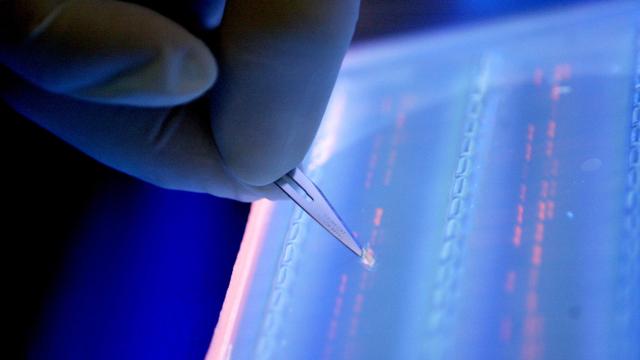An appeals court has upheld a 2017 decision recognising scientists from the Broad Institute of Harvard and MIT as the true inventors of the CRISPR-Cas9 gene-editing system. The decision likely signifies the end of a bitter legal dispute that began four years ago.
Twelve patents that relate to CRISPR — one of the most powerful gene-editing tools ever invented — are the intellectual property of the Broad Institute, the US Court of Appeals for the Federal Circuit (CAFC) reiterated earlier today.
The appeals court upheld a decision made by the Patent Trial and Appeal Board in February 2017, in which a patent claim made by geneticist Jennifer Doudna and her team from UC Berkeley was denied. The other players involved in the case, a University of Vienna team led by Emmanuelle Charpentier, also had their patent claims denied today.
The decision likely represents the end of this protracted patent battle, which started back in 2014.
This case was more than just securing bragging rights — whoever secured the intellectual property rights for this cutting-edge biotech could commercialise products made with CRISPR-Cas9, specifically genetically modified eukaryotes, that is, complex organisms such as mammals and plants.
Back in 2012, Doudna developed a CRISPR system to modify the genomes of bacteria. A year later, a Board Institute team led by Feng Zhang adapted CRISPR to engineer plant, animal and human cells. The two teams worked independently, but the patent office had to decide which institution was the first to develop the technique in which CRISPR-Cas9 was used to tweak mammalian and plant DNA.
When the patent office reached its decision in 2017, it released a painfully pithy one-sentence statement, saying there was “no interference of fact”, meaning Doudna and Zhang were working on two separate things, and by consequence, Zhang’s work was not an “obvious” extension of Doudna’s work.
Today, the CAFC said the patent office got it right last year, though instead of releasing a one-sentence statement, the CAFC judges released a detailed 19-page report to explain themselves.
“Because the [patent] Board’s underlying factual findings are supported by substantial evidence and the Board did not err in concluding that [the Broad Institute’s] claims would not have been obvious over [UC Berkeley’s] claims, we affirm,” wrote Judge Kimberly Moore in the report.
This represents a possibly fatal blow to the UC Berkeley scientists’ claim. From here, Doudna’s team could ask for yet another rehearing, or try to take the case to the US Supreme Court. But that could be easier said than done.
Well, UC could petition for either rehearing to the CAFC or cert to the Supreme Court. Because I don’t think this case presents any novel *legal* issues, I don’t think either is going to happen. /12
— Jacob S. Sherkow ???? (@jsherkow) September 10, 2018
Writing in a tweet, New York Law School legal expert Jacob Sherkow said, “I don’t think this case presents any novel *legal* issues, I don’t think either is going to happen.”
Indeed, it may be time to move on. As Heidi Ledford reports in Nature News, CRISPR technology has evolved significantly since the original patents were filed:
Researchers have since discovered new enzymes to replace Cas9, and modified the CRISPR-Cas9 system to manipulate the genome in many ways, from editing individual DNA letters to activating gene expression.
Although CRISPR-Cas9 is still often the preferred CRISPR variety for researchers in both industry and academia, other systems may grow in popularity as scientists gain more experience with them. “This is still an incredibly important case for the present,” says Sherkow. “But it may not be an incredibly important case for the future.”
However, we received this statement from Charles F. Robinson, Office of General Counsel, University of California Office of the President:
The Court of Appeals today concluded that the use of CRISPR-Cas9 in plant and animal cells is separately patentable from Drs. Doudna and Charpentier’s invention of use of CRISPR-Cas9 in any environment. We are evaluating further litigation options. We also look forward to proving that Drs Doudna and Charpentier first invented usage in plant and animal cells – a fact that is already widely recognised by the global scientific community – as the Doudna-Charpentier team’s several pending patent applications that cover use of CRISPR-Cas9 in plant and animal cells are now under examination by the patent office.
Separately, we are gratified that our dominant applications for the groundbreaking invention of the use of CRISPR-Cas9 in all environments, including plant and animal cells, will continue to issue as patents, adding to the patents recently granted in the United States and other countries around the world for this work.
As this statement suggests, this story ain’t over.
